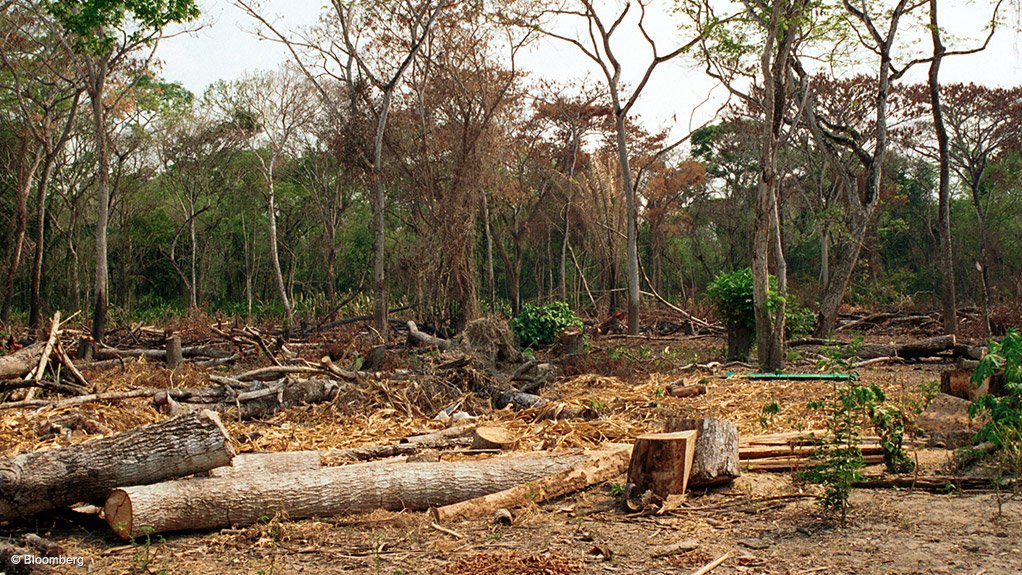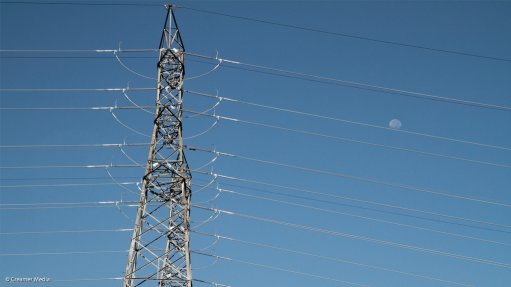Rate of global deforestation slows – FAO
Africa is leading the way when it comes to deforestation with a net yearly loss of 2.8-million hectares of forests between 2010 and 2015.
United Nations Food and Agriculture Organisation (FAO) director-general José Graziano da Silva, on Monday released the Global Forest Resources Assessment for 2015 on the first day of the World Forestry Congress in Durban.
He said that what was undoubtedly the most comprehensive forest review to date had conveyed both good and bad news. While deforestation was continuing, the rate of net global deforestation had slowed by 50% over the past 25 years.
Although about 129-million hectares of forest – an area equivalent to the size of South Africa – had been lost since 1990, an increasing number of forest areas had come under protection. There were also indications of improved forest management through legislation, as well as the measuring and monitoring of forest resources and a greater involvement by local communities in planning and developing policies.
The FAO study, which covers 234 countries, indicated that the net yearly rate of forest loss had slowed, from 0.18% in the early 1990s, to 0.08% between 2010 and 2015. While forests made up 31.6% of the world’s land areas in 1990, this had changed to 30.6% by 2015.
Today, the bulk, or 93%, of the world’s forest area is natural. This covers primary forest areas where human disturbances have been limited, as well as secondary forest areas that have degenerated naturally. Planted forest currently accounts for 7% of the world’s overall forest area, having increased by over 110-million hectares since 1990.
The study noted that planted forests were often established for production and, if managed well, could provide various forest goods and services and help reduce the pressure on natural forest.
Figures also needed to be considered in the context of an increase in global wood consumption and the continued widespread reliance on wood fuel, he said.
This is the first time that the World Forestry Congress has been held in Africa. With a central theme of Forests and People: investing in a sustainable future, South African Minister of Agriculture, Forestry and Fisheries Senzeni Zokwana noted that Africa was an appropriate choice as it was tackling some of the most important global issues surrounding forestry including climate change, the need to conserve biodiversity, urbanisation and increasing demands for commodities and environmental services.
He said issues that needed to be further explored included the need for additional public and international funding for forest conservation in Africa, engaging the private sector and strengthening governance and forest management.
Graziano da Silva said the theme and timing of the congress were significant as it came just two weeks ahead of the setting of the new Sustainable Development Goals in New York and the COP 21 Climate Change Conference.
African Union (AU) Commission chairperson Nkosazana Dlamini-Zuma said deforestation needed to be viewed in the wider context of sustainable development. Noting that it had been decided to develop a framework for forestry issues that would apply to the entire continent, she said it was important to ensure that productivity of existing agricultural land could be enhanced so that there was no need to cut down further trees to increase farm land.
She said the AU was working hard to “get more energy into Africa” to minimise reliance on wood. When fast-tracking industrialisation, she said Africa needed to leapfrog the mistakes of the past and use solar, geothermal, wind and hydroelectric technology so that development did not mean deforestation.
She said agriculture in Africa needed to be updated, mechanised and made more productive to reverse the current status quo where Africa imported 83% of its food. She stated that agriculture needed to be marketed as a business opportunity to young Africans with increased beneficiation presented as a wealth generator and job creator.
Higher yields would mean that existing land would be able to feed the rapidly growing population.
Graziano da Silva agreed that improving agricultural yields would end the trade-off between forests and the land needed for agriculture and food security. He said it was unnecessary to cut down trees to produce food as the world already wasted one-third of its produce.
Article Enquiry
Email Article
Save Article
Feedback
To advertise email advertising@creamermedia.co.za or click here
Announcements
What's On
Subscribe to improve your user experience...
Option 1 (equivalent of R125 a month):
Receive a weekly copy of Creamer Media's Engineering News & Mining Weekly magazine
(print copy for those in South Africa and e-magazine for those outside of South Africa)
Receive daily email newsletters
Access to full search results
Access archive of magazine back copies
Access to Projects in Progress
Access to ONE Research Report of your choice in PDF format
Option 2 (equivalent of R375 a month):
All benefits from Option 1
PLUS
Access to Creamer Media's Research Channel Africa for ALL Research Reports, in PDF format, on various industrial and mining sectors
including Electricity; Water; Energy Transition; Hydrogen; Roads, Rail and Ports; Coal; Gold; Platinum; Battery Metals; etc.
Already a subscriber?
Forgotten your password?
Receive weekly copy of Creamer Media's Engineering News & Mining Weekly magazine (print copy for those in South Africa and e-magazine for those outside of South Africa)
➕
Recieve daily email newsletters
➕
Access to full search results
➕
Access archive of magazine back copies
➕
Access to Projects in Progress
➕
Access to ONE Research Report of your choice in PDF format
RESEARCH CHANNEL AFRICA
R4500 (equivalent of R375 a month)
SUBSCRIBEAll benefits from Option 1
➕
Access to Creamer Media's Research Channel Africa for ALL Research Reports on various industrial and mining sectors, in PDF format, including on:
Electricity
➕
Water
➕
Energy Transition
➕
Hydrogen
➕
Roads, Rail and Ports
➕
Coal
➕
Gold
➕
Platinum
➕
Battery Metals
➕
etc.
Receive all benefits from Option 1 or Option 2 delivered to numerous people at your company
➕
Multiple User names and Passwords for simultaneous log-ins
➕
Intranet integration access to all in your organisation




















